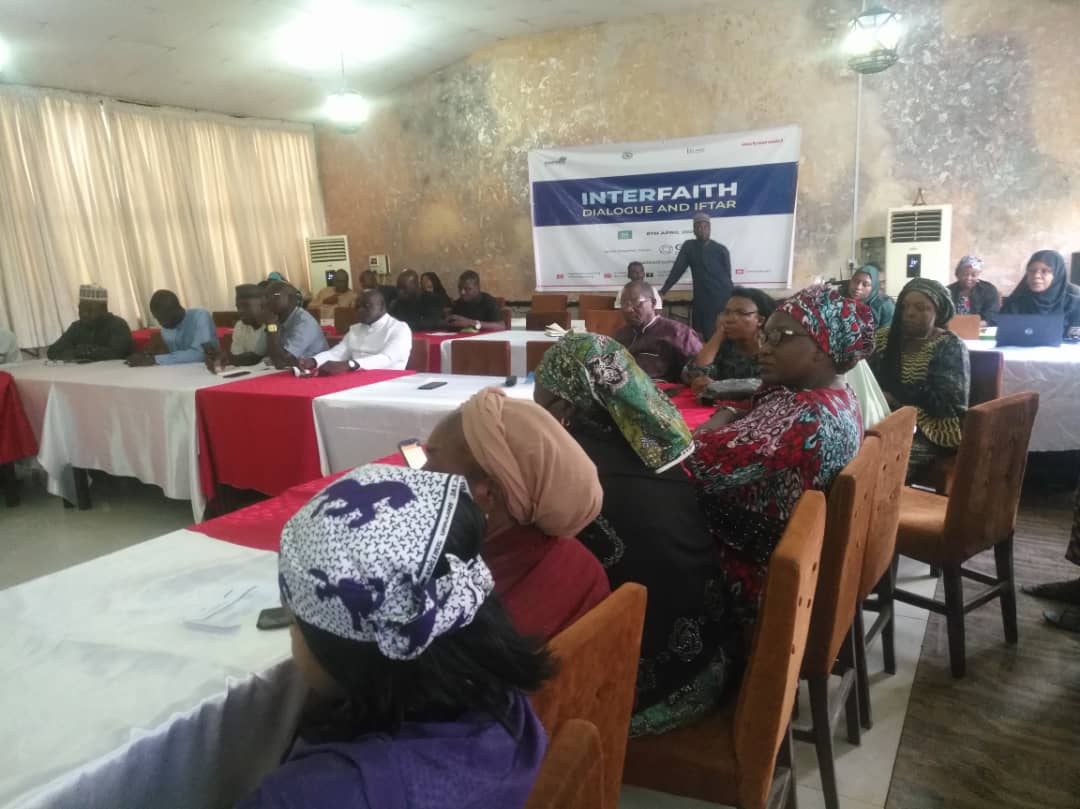By Rabiu Sanusi
The ActionAid Nigeria and Dispute Resolution has engaged over 20 based imams, pastors and scholars in Kano state to a break of fasting in order to foster peaceful coexistence between the faiths and diverse culture.
The event was organized which funding by Global Community Engagement and Resilience Fund (GCERF) through her System and Structure Strengthening Approach against Radicalization to Violent Extremism (SARVE III), and partnership with Dispute Resolution and Development initiative (Formerly Democratic Action Group)DAG.
Speaking during the event, the ActionAid Nigeria Project Coordinator of SARVE III, Aliyu Adamu said the breaking of fasting was organized to change the narratives of extremism.
Adamu Adamu said the main objective of the event is to see how it could promote social cohesion and tolerance among the religious faiths.
“We are here in Kano to see how we could promote religious dialogue, cultural diversity, tolerance and inclusion among different faiths and cultures in Kano state.
“Kano State had experience of religious violence, thuggery and other form of intra and interreligious crises. So SARVE III is organising an interfaith dialogue and Iftar (break of fasting) aimed at fostering understanding, cooperation, and mutual respect among diverse religious groups to prevent violent extremism during and after Ramadan.
The activity aimed at targeting religious leaders and scholars from various faith traditions, members of religious communities including churches, mosques and other places of worship, youth, CSO working on interfaith and peace building initiatives, and Government.
“Extremist groups often exploit religious sentiments to promote their violent ideologies.”
The interfaith dialogue and iftar provides a counter narrative by emphasizing the shared value of compassion, tolerance, and peace that are central to Islam and other faith traditions.
“By showcasing the universal principles of love and harmony, we can challenge the divisive rhetoric of extremists and promote a message of unity.
“The interfaith dialogue creates opportunities for individuals from different religious backgrounds to come together, engage in meaningful conversations, and build relationships based on mutual respect and understanding.
“By breaking down barriers and dispelling misconceptions, we can cultivate a culture of inclusivity and solidarity that is essential for preventing the marginalisation and radicalisation of vulnerable communities.”
In his paper presentation, Director, Centre for Islamic Civilization and Interfaith Dialogue, Bayero University, Kano, Dr. Taufiq Abubakar Hussain called on the religious leaders to shun hatred and enmity which is built around some issues such as political inclination or tribalism or regional and focus on what the holy books teaches such as good attitudes and behaviours to all.
Dr. Taufiq said no religion faithfuls should look down or downplay any other religion as that may trigger or ignite a reciprocal attitude that may lead to violence.
On his part, the Immediate past Chairman, Christian Association of Nigeria, CAN, Kano chapter, Rev. Samuel Adeyemo advised that religion should not be a tool that people of lesser knowledge take advantage of to divide others or nigerians.
Adeyemo also called on nigerians to change their mindset noting that the faithfuls should go beyond tolerating one another to accepting each other.
In his speach the Executive Director, Dispute Resolution and Development initiative (Formerly Democratic Action Group) DRDI-DAG, Dr. Mustapha Muhammad Yahaya said the event was organized to ensure mutual understanding among the religious leaders and the scholars in order to send a strong signal to their followers to shun violent extremism.




